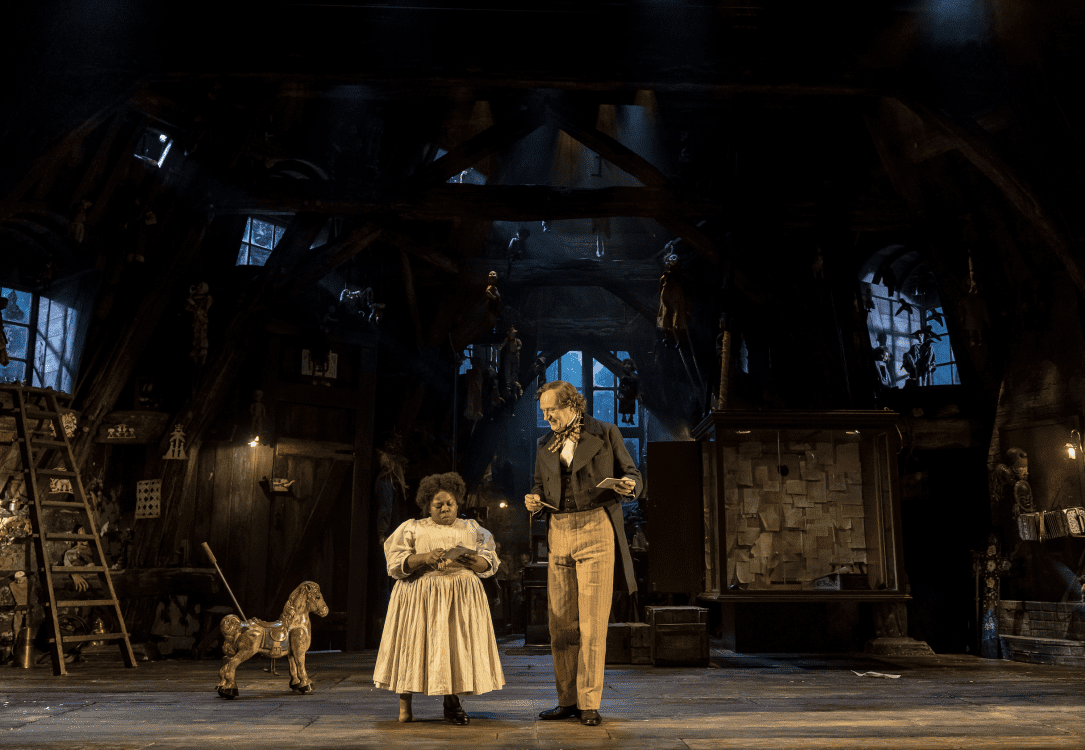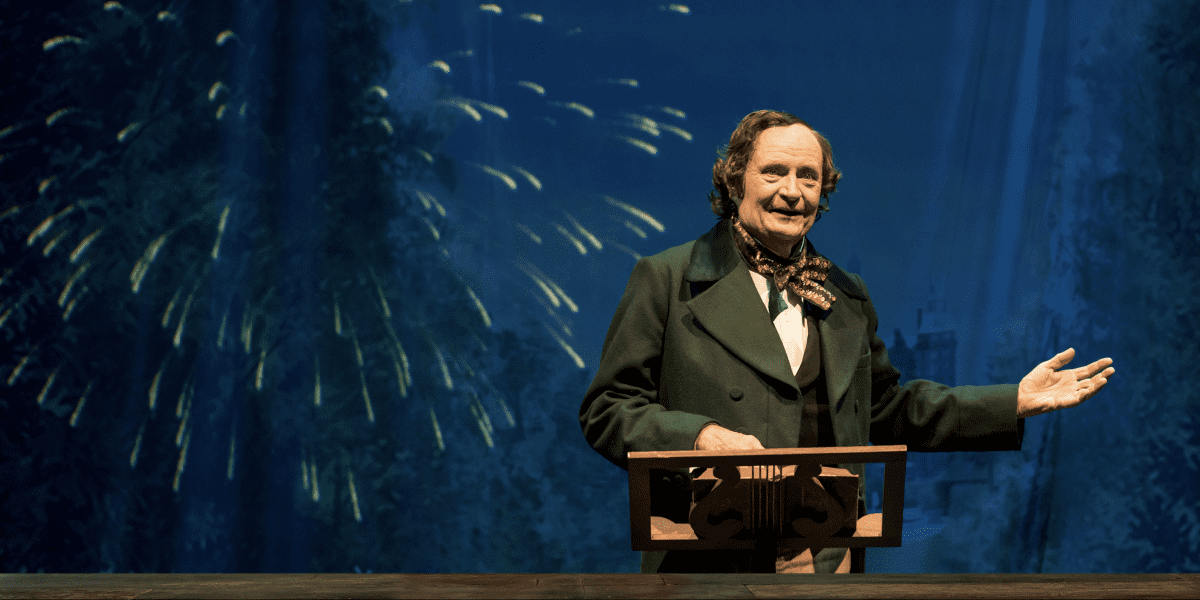Martin McDonagh’s ‘A Very Very Very Dark Matter’ seems, by turns, to be a hard-hitting lampoon of the western attachment to canonical white male writers, and an uncomfortable pantomime that got lost on its way to a performance at Jacob Rees-Mogg’s house. The script is deliberately, eye-poppingly offensive, stuffed with brazen humour of the very darkest shade which creates a Borat-esque entertainment.
Sending up the iconic Hans Christian Andersen, McDonagh suggests that his stories were in fact written by a small Congolese woman nicknamed ‘Marjory’, who Andersen keeps in a wooden box in his attic. The famously pessimistic nature of Andersen’s stories acts as a justification of this extreme theory. In the play, it is Marjory who creates characters such as the diminuitive Thumbelina, signalling her plight to her readership. Meanwhile Hans is constantly reminding her to brighten up her stories.
Jim Broadbent is a pleasure to watch on stage, creating a blasé, foul-mouthed and conniving character. His quips elicit laughs of disbelief at a representation of Andersen that is the polar opposite of anything one would imagine. Johnetta Eula’Mae Ackles, in her professional stage debut, creates a wonderfully frank and feisty Marjory, the brain behind the creations that are attributed to Andersen. This makes an interesting statement about the swathe of white male authors who dominate the canon, obliterating the many voices of other people who never got a chance.
This critique of male literary dominance is interwoven with other strands of the plot that foreground the violence of western colonialism. In a convoluted series of time-travelling episodes, two Belgian soldiers killed during the colonial massacre of 10 million Congolese people have come back to plague Andersen and kill Marjory, who plans to prevent the slaughter. Meanwhile, Andersen visits a promiscuous Charles Dickens in England upon finding that in fact Marjory’s sister is writing the fiction published in Dickens’ name. While this juxtaposition is effective as a sharp reminder of western colonial cruelty and the uncaring attitude among the people of the colonising nations, the plot comes across as rather heavy-handed and poorly structured. Hans, without much sign of a change in character, eventually lets Marjory go off on her mission and ends the play by simply asking us to imagine what would have happened if she had been successful.
The play raises a number of big questions, but the connection between male authorship and colonial oppression is established too tenuously to provoke deeper engagement. Although the offensive jokes and the bombastically ridiculous collocation of wildly different plot elements are evidently designed to provoke a visceral reaction in the audience, the impact soon wears off as the jokes become predictable. I leave rather exhausted, still trying Very Very Very hard to make sense of what I’ve just experienced. It won’t be everyone’s cup of tea, but the play is worth seeing if you’re interested in probing ways of provoking the audience to think about major political issues in fresh ways.

